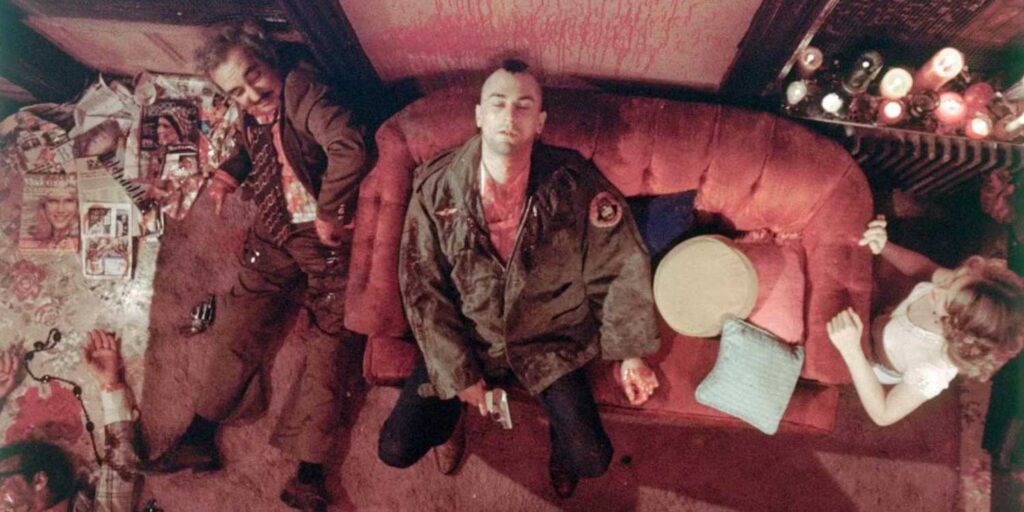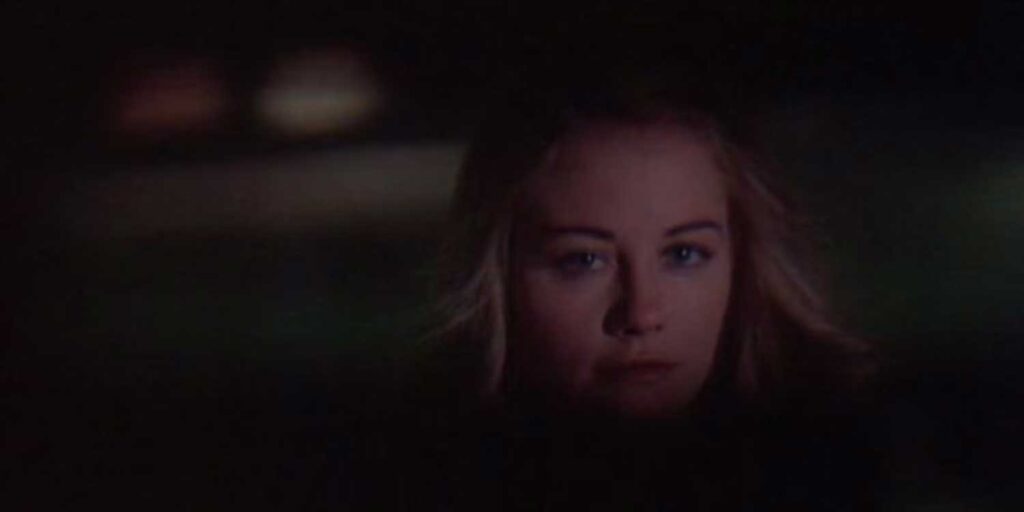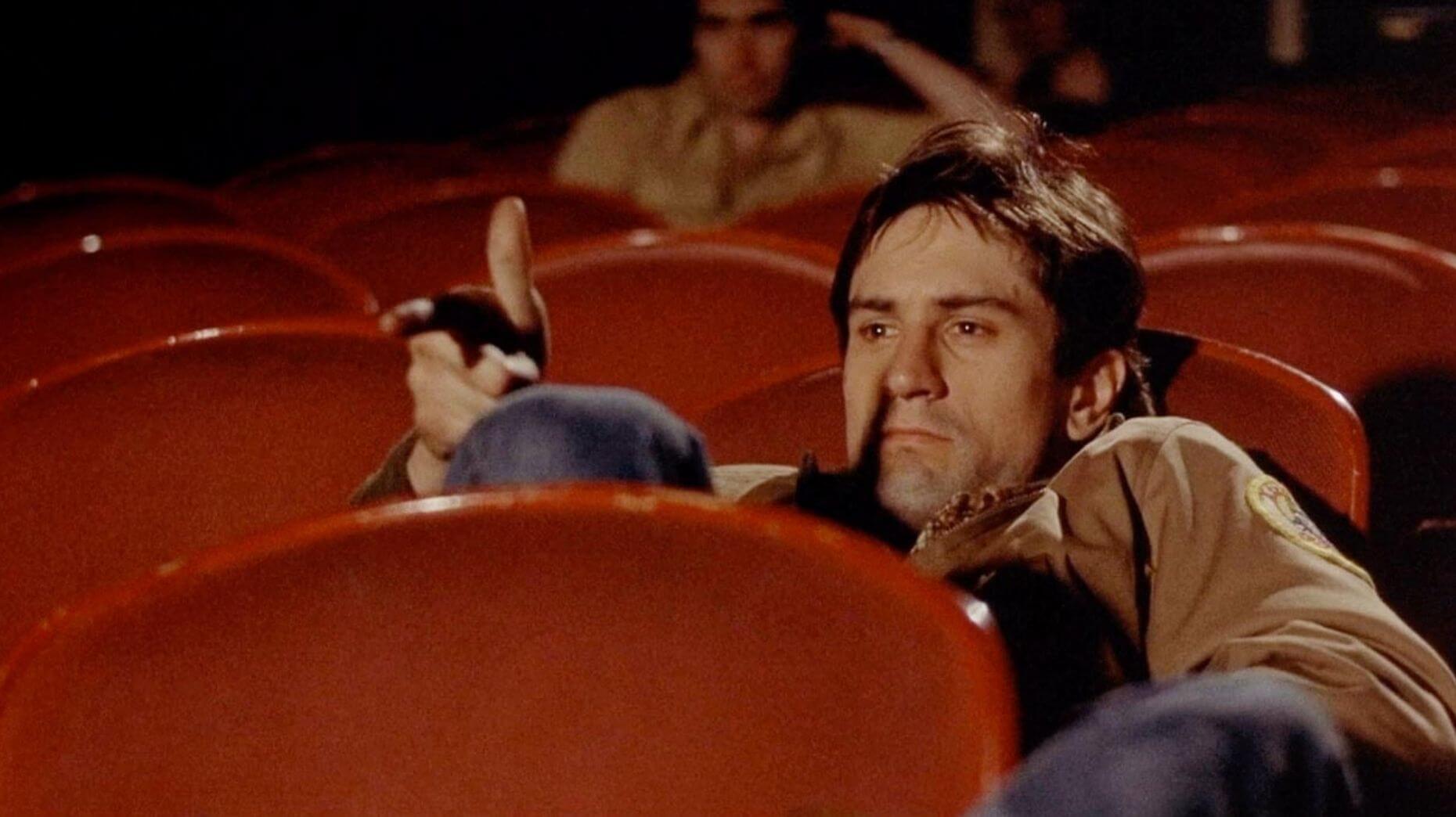Top 100 Movies Taxi Driver. Welcome back to our journey through the top 100 Hollywood movies of all time. We have finally arrived at the mythical movie Taxi Driver. Today, we’re diving into the gritty and thought-provoking world of “Taxi Driver,” directed by the legendary Martin Scorsese. This 1976 classic is a masterclass in film-making and storytelling, and it leaves a lasting impact on anyone who dares to enter the mind of Travis Bickle.
Thoughts on the Film “Taxi Driver”: Before we delve into the details of this glorious technicolor achievement, let’s take a moment to explore some thoughts and insights about Taxi Driver. Taxi Driver is a film that offers a haunting exploration of urban alienation and the dark underbelly of society. At its core, it’s a character study of Travis Bickle, portrayed with raw intensity by Robert De Niro. Travis is a Vietnam War veteran who takes a job as a taxi driver in the seedy, crime-ridden streets of New York City.
The film’s narrative takes us through Travis’s descent into madness as he becomes increasingly obsessed with the city’s decay and corruption. His inner monologues, captured in the form of journal entries, reveal a troubled mind that is struggling to make sense of the world around him. One of the most iconic aspects of Taxi Driver is its portrayal of urban life. Scorsese’s direction immerses us in the gritty streets of New York, creating an atmosphere of tension and unease. The film doesn’t shy away from the harsh realities of the city, and it forces us to confront the moral ambiguity and violence that Travis encounters.
The character of Travis Bickle has become a symbol of the disillusioned and alienated loner. His attempts to connect with others, including his infatuation with Betsy (Cybill Shepherd) and his desire to save a young prostitute named Iris (Jodie Foster), are both poignant and disturbing. In the film’s climactic and shocking conclusion, Travis goes on a violent rampage, attempting to cleanse the city of its sins. The ambiguity of whether he is a hero or a villain is one of the film’s central enigmas. Taxi Driver challenges us to question our own perceptions of justice and morality.
But what is the movie Taxi Driver? Really? Taxi Driver is a film that defies categorization. It’s a psychological thriller, a character study, a social commentary, and a visual masterpiece. Scorsese’s direction, paired with Paul Schrader’s brilliant screenplay, creates a compelling and deeply unsettling cinematic experience.
Robert De Niro’s performance as Travis Bickle is nothing short of extraordinary. He fully inhabits the character, and his portrayal is a masterclass in method acting. The film’s supporting cast, including Cybill Shepherd, Jodie Foster, and Harvey Keitel, delivers powerful performances that contribute to the film’s overall impact.
The cinematography by Michael Chapman captures the stark contrast between the neon-lit streets and Travis’s increasingly deranged state of mind. The haunting score by Bernard Herrmann adds to the film’s unsettling atmosphere, and its influence can be felt in countless other movies.

But The Ending of Taxi Driver Man!
Yeah. It’s all about that ending. I agree. What happens? And WHY? As the movie progresses, we watch as Bickle cuts his hair into a mohawk, and begins his planning for assassinating Palantine, the politician. (A symbol of the broken political system that gave us the Vietnam War and neglected countless individuals at home… you get the idea.) When he is noticed by the Secret Service agents, he runs. Later that evening, Bickle goes to Iris’ brothel where he shoots her pimp. Bickle is shot, but he also manages to kill both her pimp and a mafia man who was supposedly a client. Bickle tries to kill himself after killing a bouncer, but he’s out of bullets.
After falling into a coma because of his gunshot wounds, the press hail him as a hero – a vigilante hero. He’s let off the hook for the men he killed. And he gets a letter from Iris’ parents telling him how thankful they are for saving their daughter. OK, just stop.

What Really Happened at the End of Taxi Driver??
First, Bickle dies in the shoot out with the pimp, the bodyguard, and the client. Dead. We know this because the movie becomes so idealistically obscene as to lose all sense of hellish horror that permeated the rest of the film. Do you honestly think that this movie, one the darkest movies ever made, would suddenly become the sort of movie that would be a happy ending sort of experience? No. So, we watch as Bickle dies, and then we see his reunion with Betsy. An angel, that escorts him to the other side. And then, he sees something in the distance, something that disturbs him. A demon? The devil? We don’t know. But it causes him to crash back down to reality of his circumstances.
A Few Thoughts on the Film Taxi Driver
This screenplay doubles back on itself so hard that it flips the audience into the crosshairs, and calls us out for our complicity in the evil that permeates all of society on a day-to-day basis. It asks us what we have done? Asks how we could support this political system… worse, this praise for “vigilantes” that come from movies just like Taxi Driver. It convicts us for our malaise of inaction. Tells us that we are just as much to blame for this world that we live in, as Bickle is. And what better time for this message to catch us right between the eyes than right now?
It’s clear that in the conclusion, Taxi Driver is a film that lingers in your thoughts long after the credits roll. It’s a powerful exploration of the human psyche and the darkness that can lurk within. As we continue our journey through the top 100 Hollywood movies, Taxi Driver stands as a timeless example of the art of film-making and storytelling.
Edited by: CY



